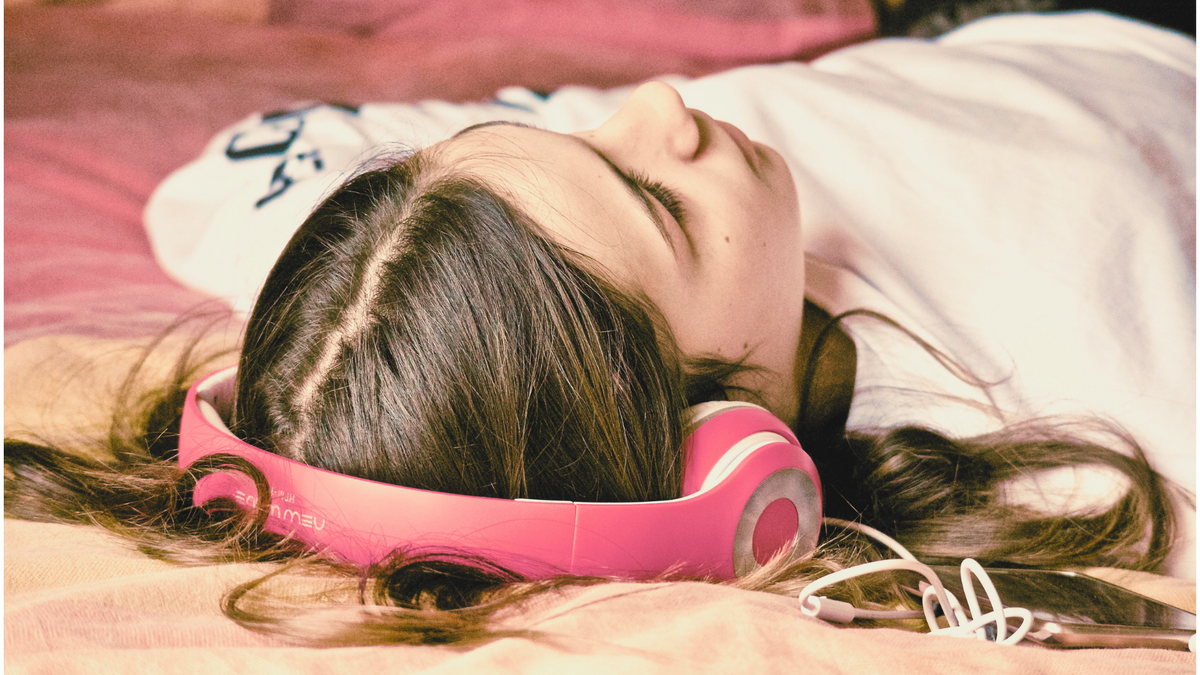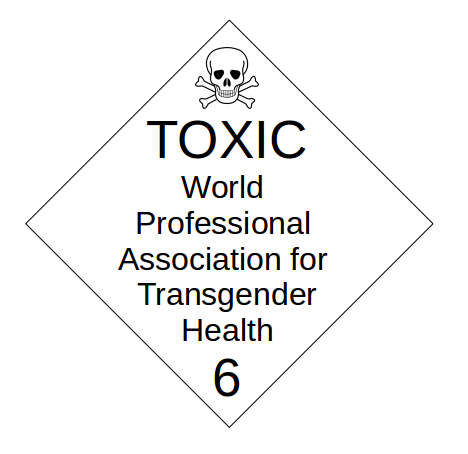Growing Up a Girl is Definitely Not about Sparkles, Ponies and Sleepovers
...I want to tell men pretending to be women who complain they never experienced girlhood.

When I was growing up, there was a very short period of time when I was blissfully unaware of what existing as a female in the world meant. Like Eve before she bit the apple, I was ignorant of my body as a sinful, hated thing, as something that needs to be monitored, fixed, judged, and scrutinized into oblivion. I didn’t yet know that to be a girl is to always be considered less than, a poor imitation of what a real human being is: a man. Although this period didn’t last very long, I still consider myself lucky, as there are many girls who never get to experience this blissful state at all if their childhoods are marked by terror and abuse.
Some men pretending to be women bemoan the fact that they never got to experience girlhood. They also accuse actual women of being privileged as they were not shamed for playing with dolls in their childhood. It seems they imagine girlhood is all ponies, sparkles and having sleepovers with your friends where you giggle over boys and have pillow fights. Such a pink, sanitized notion of girlhood proves men can never know what it’s like to exist in this world as a female child. I’ll tell you what it’s like, I want to say to them. I’ll tell you what it’s like and then you can tell me if it’s still an experience you feel you missed out on.
”Some men pretending to be women bemoan the fact that they never got to experience girlhood.”
I grew up in the nineties, a time when strict gender roles appeared quite relaxed. As a child, I played with both Barbie dolls and dinosaurs, Hot Wheels and Polly Pockets, something that was seen as perfectly normal back then but could have me dragged off to the nearest gender clinic today. I saw no distinction between “girl” toys or “boy” toys—to me they were just toys. Like a lot of kids, I wanted to play with whatever was fun to play with and let my imagination run wild. I climbed trees, rode my bike, ran around with kids in the neighborhood—lucky to be growing up before the era of parents covering their children in layers of metaphorical bubble wrap with the intention to keep them safe. Back then, I had no notion that a girl was supposed to be anything other than herself. But soon after, the world made sure I was dispelled of that innocent idea.
In elementary school, a separateness began to emerge between girls and these strange creatures we called “boys.” Crying the chant of “Girls rule! Boys drool!” I chose my side, without realizing that the choice had already been made for me, thousands of years in advance. And it was still too soon for me to recognize the fact that I was on the losing side.
But I caught on quickly enough, helped along by teachers, parents, and all of the other adults in my life. I remember in fifth grade when we had a male substitute teacher. One day, he was giving us a bit of a history lesson. I don’t recall the exact context but the gist of it was that “in the past” men had ruled over women and women had had no say in anything, forced to submit to the whims of men until they were “given” the right to vote. Upon learning of the subjugation of the female sex, one boy pumped his fist in the air and cried, “Yeah!” with a triumphant grin on his face. It was like he already knew, without being explicitly told, that when women lose, men win—and that was just fine with him. He was not reprimanded for this outburst, or even given a sharp look. The teacher simply shrugged, gave a vague sort of nod and said, “Yes, that’s just the way it was.”
”Upon learning of the subjugation of the female sex, one boy pumped his fist in the air and cried, ‘Yeah!’ with a triumphant grin on his face.”
In my sixth grade co-ed P.E. classes, we had a male gym teacher who would sometimes divide sports teams by sex during games of soccer or kickball. To presumably make things more fair, he would always have a couple of boys play on the girls’ team but it was never the other way around. It was never, “Hey, Jessica, why don’t you play on the boys’ team, help even the odds a little?” Back then, it made me vaguely uncomfortable to be divided by sex although I couldn’t explain why. Looking back as an adult, it strikes me how unfair and grossly sexist this was—like he was deliberately setting the girls up to fail. Because no matter how hard we tried or how well we played, we never won, even with a couple of boys on our team. It only served as another reminder that we weren’t as good.
If elementary school is where I learned I wasn’t as good as the boys, high school is where I was taught that my main function was to serve as an object for male consumption—an object that is both lusted after and ridiculed because while all of my interests and hobbies were dismissed as “stupid girly shit” by the boys, these same boys would whistle and leer as I walked down the hallway, staring openly at my newly-developed breasts.
One day, I made the poor decision to wear a low-cut shirt with a too-small bra, a combination that pushed my boobs up to obscene levels—unintentional on my part, but of course it attracted attention. As I was making my way down the crowded hall towards homeroom, I walked past a group of boys and one of them shouted “NICE CLEAVAGE!” I didn’t respond, just kept my head down and kept walking but that moment, those words, stayed with me for the rest of the day. I kept going over it in my head: should I have laughed? Made it into a joke? Screamed at him and punched him in his stupid teenage boy face? But more than anything, I wanted to cover myself up. I berated myself for making such a stupid fashion choice, attracting the kind of attention that I most definitely didn’t want. Because I believed it was my fault for showing cleavage and not his fault for verbally harassing me.
Going through puberty is challenging for everyone but when it comes to who has it the worst, there’s no contest. Boys may have to deal with voice cracks, patchy facial hair and inconvenient erections, but girls experience even more radical changes to their bodies. Where there was once a flat chest are now growing breasts. Fat is now distributed to the hips, buttocks, and thighs; body hair starts to grow. And then there’s the big one: menstruation, an experience complete with stabbing pains and muscle cramps, mood swings, and blood coming out of your vagina. Welcome to womanhood, ladies!
In an ideal world, girls going through puberty would be a neutral experience, nothing more than their bodies maturing and growing into adulthood. But girls are hit with another aspect of puberty that boys often aren’t: shame. The newly-growing body hair on their legs, armpits, and pubic region is declared “unwanted” and must be shaved, waxed, or plucked. Their developing breasts are leered at if they’re not covered up, or even if they are. Menstruation is treated as either a dirty secret or a crass joke. (“Someone’s on her period!”)
While boys are celebrated for “becoming men,” girls are hit with a double-whammy of a changing body and being shamed for those very changes that mark them as maturing into womanhood.
”Going through puberty is challenging for everyone but when it comes to who has it the worst, there’s no contest.”
It’s no wonder that the majority of teenage girls suffer a drop in confidence as they get older. In a 2014 study surveying self-reported levels of confidence in tween and teen girls, it was documented that girls suffer a 30% drop in confidence levels between the ages of 8 and 14. Before they hit puberty, girls typically reported a high confidence level on par with boys. But once they enter their early teen years, their confidence in themselves and their abilities begins to decline. Girls are 24% less likely to think they would be able to ace a test and are three times less likely to believe they would succeed in a STEM career.
There are several theories put forth as to why teen girls suffer this drop in confidence: girls are more likely than boys to dwell on negative thoughts; girls are socially conditioned to focus on pleasing others; perfectionism and following rules is encouraged in teen girls more so than boys while risk-taking is not.
But none of these theories seem to take into account the hostile environment that girls are growing up in. As soon as they begin going through puberty, even before then, girls are sexualized and objectified, consuming and absorbing media that portrays women and girls as nothing more than decorative objects for men to lust over. They are subconsciously taught to focus on their appearance and how they look to others instead of focusing outward on what they might do in the world, what they might want to become. Almost half of teen girls (44%) try to lose weight, compared to only 15% of teen boys. And a staggering 90% of girls use some type of beauty products, even from ages as young nine.
If it was a nightmare back when I was growing up, with the casual sexism and misogyny running rampant, it must be literal hell today for girls going to school with boys who watch violent pornography in class and have access to incel subreddits. I’m not surprised so many girls and young women are attempting to identify out of womanhood. If trans or nonbinary identities had been popular when I was growing up, I’m sure I would have adopted one in a heartbeat, trying to shield myself from the world’s hatred of all things female.
I wish I had a solution for these girls. I wish I could talk to them and tell them that if you can exist as your own person without caving in to the demands that our society puts on them—to look pretty and fuckable, to be sexy and cute, the “cool girl” that all the boys will want—then that will be infinitely stronger and more empowering than any identity they could adopt.
I wish I could make the world over for these girls, into one where they don’t have to be anything other than themselves.
The generous support of our readers allows 4W to pay our all-female staff and over 50 writers across the globe for original articles and reporting you can’t find anywhere else. Like our work? Become a monthly donor!
Enter your email below to sign in or become a 4W member and join the conversation.
(Already did this? Try refreshing the page!)




Comments